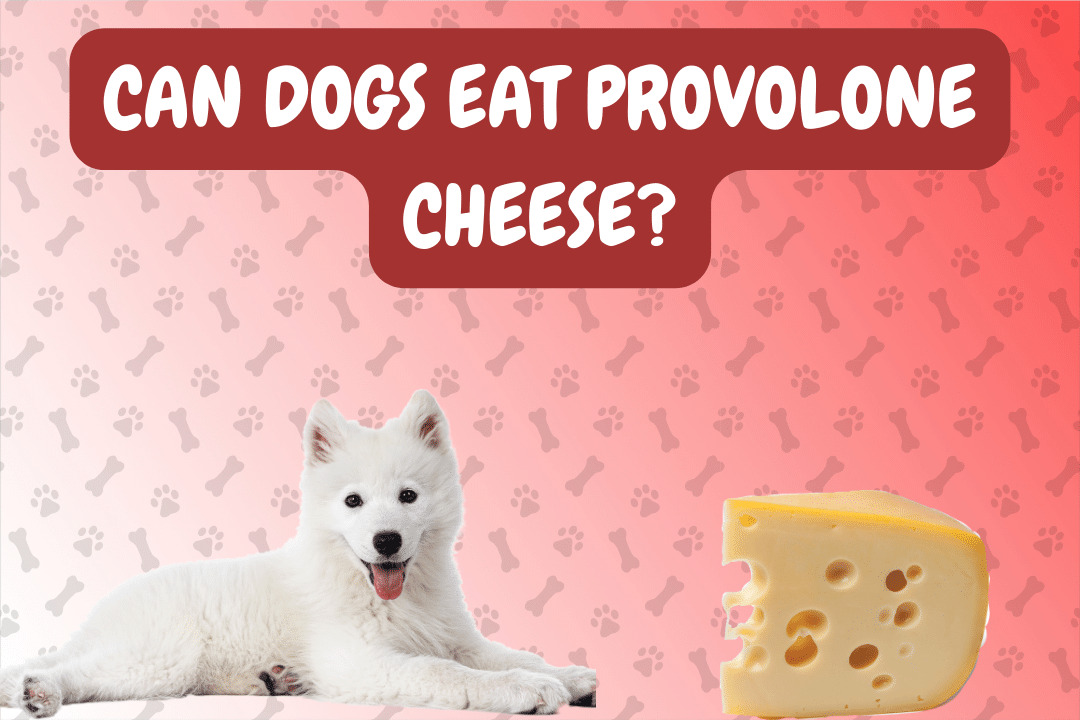No, dogs can’t eat provolone cheese because it can be harmful to their health.
Table of Contents
Introduction
Dogs are known for their love of food and their tendency to beg for a taste of whatever their human companions are eating. While it’s tempting to share a snack like provolone cheese with your furry friend, it’s crucial to understand can dogs eat provolone cheese. In this article, we will explore whether dogs can eat provolone cheese, examining the nutritional value, potential risks, safe serving practices, alternatives, special considerations, expert opinions, and ultimately, why it’s best to avoid sharing this cheese with your canine companion.
Nutritional Value
Provolone cheese is a dairy product that contains high levels of fat, protein, and sodium. While these nutrients are essential for humans, dogs have different dietary requirements that are best met through specially formulated dog food. Excessive consumption of cheese can lead to weight gain and other health issues in dogs.
Potential Risks
Feeding provolone cheese to dogs can pose several risks. The high fat content in cheese can lead to obesity and digestive problems. Additionally, the salt content in provolone cheese is much higher than what is recommended for dogs and can lead to sodium ion poisoning, which includes symptoms like vomiting, diarrhea, and even more severe health issues.
How to Serve Safely
To serve cheese safely to your dog, it’s crucial to do so in moderation. If you choose to share a small amount as an occasional treat, make sure it’s plain, unseasoned provolone cheese. Remove any wrappers or packaging and cut it into small, manageable pieces to prevent choking hazards. Always monitor your dog for any adverse reactions.
Serving Suggestions
Instead of provolone cheese, consider offering your dog safer alternatives as treats. Many pet stores offer dog-friendly cheese-flavored treats that mimic the taste without the health risks associated with real cheese.
Special Considerations
Every dog is unique, and some may have allergies or sensitivities to certain foods. Before introducing any new food into your dog’s diet, consult with your veterinarian to rule out potential allergies or dietary restrictions.
Expert Opinion
Veterinarians and experts generally advise against feeding provolone cheese to dogs due to the risks involved. While the nutritional value of cheese is beneficial, the potential hazards from high-fat and high-sodium content make it an unsafe choice for your canine companion.
Conclusion
In conclusion, dogs should not be given provolone cheese as part of their regular diet. While cheese offers some nutritional benefits, the risks associated with high fat and sodium content outweigh any potential advantages. To ensure your dog’s health and well-being, stick to high-quality dog food and treats specifically formulated to meet their dietary needs and avoid sharing human foods like provolone cheese.
FAQ
Q1: Can dogs eat other types of cheese?
A1: Some dogs may tolerate small amounts of low-fat and low-sodium cheese varieties, like cottage cheese or mozzarella, in moderation. However, it’s essential to monitor for adverse reactions and consult with a veterinarian.
Q2: What happens if my dog accidentally eats provolone cheese?
A2: If your dog consumes provolone cheese accidentally, monitor them for any signs of distress, such as vomiting or diarrhea. If symptoms persist or worsen, contact your veterinarian.
Q3: Can puppies eat provolone cheese?
A3: Puppies should avoid provolone cheese or any high-fat, high-sodium foods. Their growing bodies have specific dietary requirements, and it’s best to feed them a balanced puppy food.
Q4: Are there any health benefits of cheese for dogs?
A4: While cheese provides some nutrients, it’s not necessary for a dog’s diet. It’s best to provide essential nutrients through specially formulated dog food.
Q5: Can dogs develop lactose intolerance from eating cheese?
A5: Some dogs may be lactose intolerant and experience digestive issues after consuming dairy products like cheese. It’s essential to be cautious and consult with your veterinarian if you suspect this sensitivity.
Q6: Can dogs eat cheese-flavored snacks made for humans?
A6: Most human cheese-flavored snacks are not suitable for dogs due to their high salt and fat content. Stick to dog-friendly cheese-flavored treats if you want to offer a similar taste.
Q7: Can cheese be used as a training treat for dogs?
A7: Small amounts of low-fat, low-sodium cheese can be used as a training treat, but it should be a rare and small part of their overall diet.
Q8: Are there dog-safe cheeses available?
A8: Some pet stores offer dog-safe cheeses and cheese-flavored treats formulated to be safe and tasty for dogs. These are a better option than human cheeses.
Q9: Can cheese cause pancreatitis in dogs?
A9: Yes, high-fat foods like cheese can contribute to pancreatitis in dogs, making it a significant health risk.
Q10: Can dogs eat cheese pizza?
A10: No, because it contains multiple ingredients that can be harmful, including the cheese, high-fat toppings, and potentially toxic seasonings.
For more Dogs food informations, visit our blog.
Hello! I’m Max Walley, a pet enthusiast who knows a lot about what our animal buddies can munch on and what’s a no-no. With ‘canpeteat.it,’ I’m here to help pet owners make smart food choices. Come with me as we dive into the world of pet nutrition, discovering what keeps our furry pals joyful and in tip-top shape. Let’s explore this adventure together!


